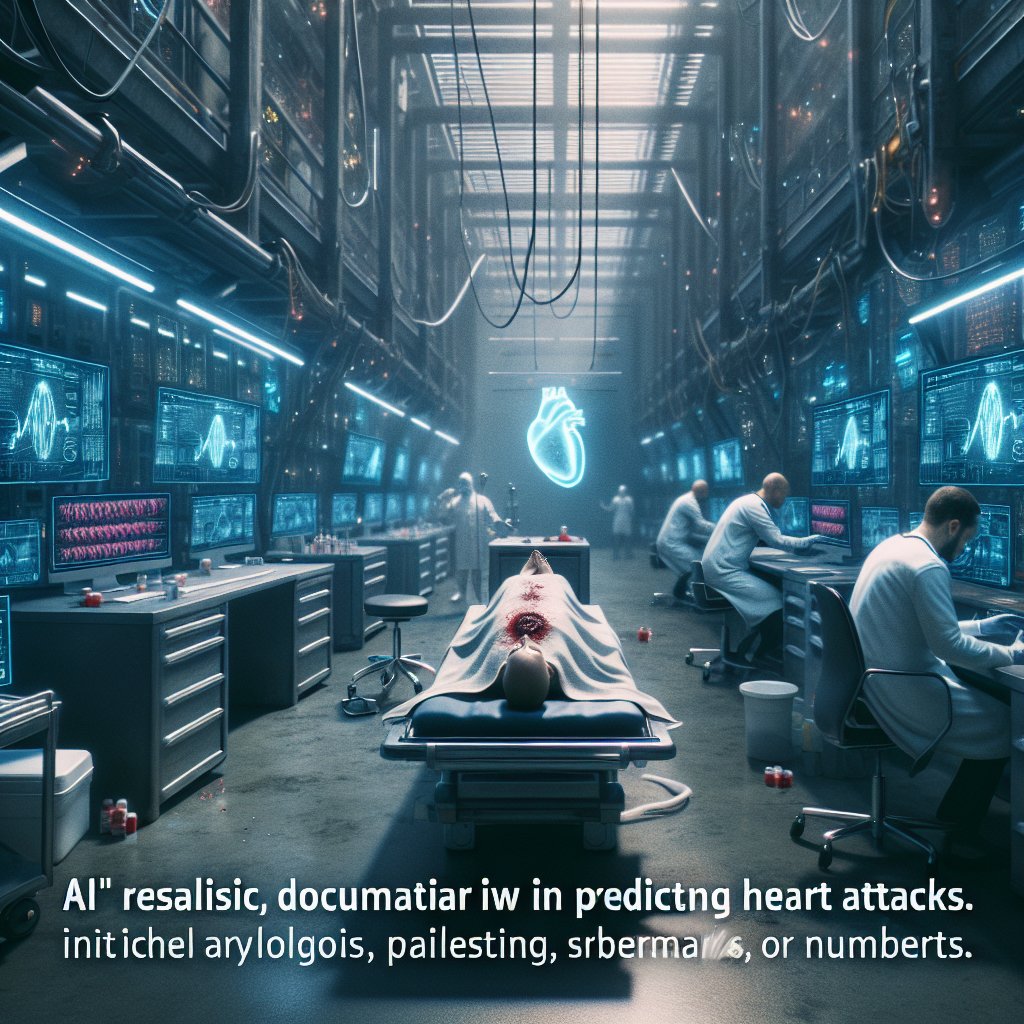The AI Frontier in Cardiac Surveillance
In the shadowy corridors of modern medicine, AI emerges as a tool not just for healing, but for surveillance. Coronary Artery Calcium (CAC) scoring, once a niche method, is now poised to become a staple in predicting heart attack risk. This transformation is fueled by algorithms capable of extracting CAC scores from routine chest CTs, bypassing the need for specialized scans. While this may seem like a leap forward, it’s crucial to question who truly benefits from this technological expansion. Is it the patients, or the tech companies eager to monetize health data under the guise of innovation?
The calcification process within arteries, a silent harbinger of potential heart attacks, is now under the AI microscope. This technology promises to alert patients and doctors about high-risk scores, yet the implications of such alerts remain murky. As AI-derived CAC scores gain traction, the line between proactive healthcare and invasive surveillance blurs. The startups behind these algorithms are growing rapidly, but their role in shaping medical practices raises questions about the commodification of patient data and the ethical boundaries of AI in healthcare.
The Illusion of Comprehensive Care
Historically, CAC scans were dismissed as a luxury for the ‘worried well,’ a term that underscores the socio-economic biases entrenched in healthcare. Today, despite growing endorsements from expert groups, insurers remain reluctant to cover these tests. This reluctance hints at a deeper issue: the potential for AI-derived CAC scores to serve as a tool for selective healthcare, where only those who can afford it receive comprehensive care. The promise of refined risk estimates through AI is overshadowed by the reality of unequal access and the potential for exacerbating existing healthcare disparities.
The allure of AI in medicine is its ability to mine vast datasets for patterns, ostensibly to uncover hidden diseases. However, the effectiveness of CAC scores as a universal screening tool is questionable. A Danish study in 2022 found no mortality benefit from population-wide CAC screening, challenging the narrative of AI’s infallibility in healthcare. If AI were to automate this process, would it truly enhance patient outcomes, or merely create a facade of technological progress while perpetuating systemic inequities?
The Burden of Incidental Findings
As AI-driven CAC scores become commonplace, the healthcare system faces a new challenge: managing the fallout of incidental findings. Without standardized procedures, these findings risk overwhelming healthcare providers, creating more chaos than clarity. The lack of infrastructure to handle such data at scale could lead to a scenario where the promise of AI-generated insights is drowned out by the noise of unmanageable data.
Nishith Khandwala, cofounder of Bunkerhill Health, warns of the potential pitfalls of widespread CAC score adoption. Without a clear protocol for follow-up, incidental findings could become a burden rather than a boon. This scenario underscores the need for a critical examination of AI’s role in healthcare: is it a tool for empowerment, or a mechanism of control that benefits a select few while leaving the masses to navigate an increasingly complex medical landscape?
A Future Shaped by Algorithmic Decisions
In a world where AI dictates healthcare decisions, the power dynamics of medicine are shifting. The integration of AI-derived CAC scores into routine practice represents a microcosm of broader trends in medical surveillance and algorithmic control. As these technologies evolve, they challenge the traditional doctor-patient relationship, placing decision-making power in the hands of algorithms. This shift raises critical questions about autonomy, consent, and the potential for algorithmic bias to influence healthcare outcomes.
The future of cardiac care, shaped by AI, is a double-edged sword. On one hand, it offers the potential for early intervention and improved outcomes. On the other, it risks transforming healthcare into a surveillance apparatus, where patients become data points in a system driven by corporate interests. As we stand on the brink of this new era, the need for vigilance and ethical oversight has never been more urgent. The choices we make today will define the contours of healthcare in the digital age, determining whether technology serves humanity or subjugates it.
Meta Facts
- •💡 CAC scores can be derived from routine chest CTs using algorithms.
- •💡 A 2022 Danish study found no mortality benefit from CAC screening.
- •💡 Most insurers do not cover CAC scans, limiting access.
- •💡 AI-derived CAC scores risk creating unmanageable incidental findings.
- •💡 Standardized follow-up procedures for CAC findings are lacking.

